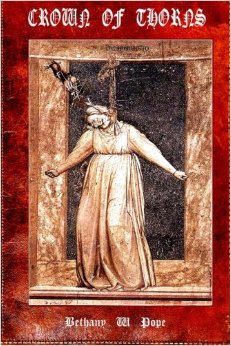‘Ordinary lives are not for us’, a truth born out in this blatantly autobiographical collection, in which Pope is both the custodian of her extraordinary family history whilst at the same time being an integral part of the narrative.
In this family, the sins of the fathers are continuously re-visited on the children.
‘Every family creates, enjoys, forces on its members.’ Abuse, psychical and mental becomes a family trait, each generation unable to see the failings and stop the rot. Yet there is no censure in her tone as she reveals these family crimes, rather a sense of compassion for each generations struggles with life and indeed their own natures. These family members stretching back as far as great grandfather are constantly revisited or included throughout the sonnet sequence reinforcing the idea that we still walk with our ancestors whether it be in mannerisms, characteristics or talents. Pope adopts an old testament tone throughout which combined with the epic nature of the collection serves to render her family members almost mythological.
Abuse in one form or another permeates the piece. Blood and the Old Testament are motifs used to explore this darker aspect of Pope’s family. Such abuse takes many forms including sexual, neglect and rejection. The effect of the repeated use of the word ‘blood’ is to suggest that flaws are written into the DNA of the family. Yet at the same time combined with the sonnet form itself there is a sense of the poet’s pride in her ancestors ‘Love is the river that runs through our blood ’. Nevertheless the sequence contains some harrowing narratives. Whilst I could accept but not condone the behaviour of great-grandfathers it was the allegations and revelations laid against closer relatives that I found shocking. Hints of the writer consigned to an orphanage by her parents are truly disturbing.
However this is not an entirely gloomy story. There is a strong sense of pride in family members whose traits also include ambition and a desire to survive. It is these characteristics that the poet is rightly pride of, Great grandfathers and grandfathers making good against the odds. Significantly it is many of the women in her family who are resilient and resourceful not least Pope herself. Religion plays a part here. This family’s faith is that of the Old Testament. Pope skilfully adopts the lexis and tone of this bible. Whilst this creates a tension between many members’ belief and their abusive behaviour, she makes it clear that religion is ultimately the salvation of the family.
In this collection we see the effects of four generations on each other. Whilst these individuals were unable to recognise the pattern of past errors, Pope manages in hindsight to see the whole picture. Thus she gives us the pathology of an extra-ordinary family; the at times proud tone suggests that she prefers by far her family to be usual. Whilst it is a feat in itself to relate the narrative in a sonnet sequence complete with acrostic epithets, the use of the sonnet form also aids the reader in two ways. The often harrowing events are recounted in the more remitting medium of sixteen lines. Yet at the same time these densely packed verse encourage us to study the meaning more intently not least to decode the acrostic puzzles.
Order your copy of Crown of Thorns by Bethany W Pope. from Oneiros Books here.

